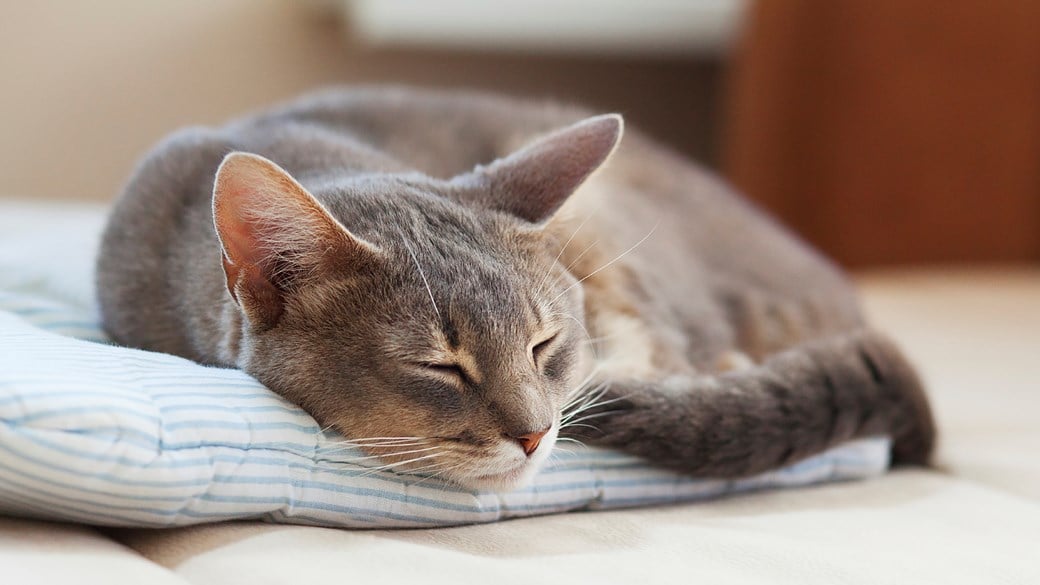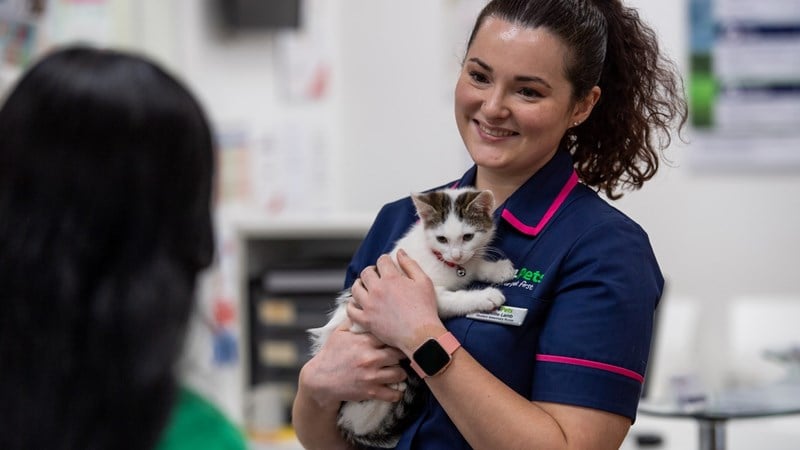
Cat Chronic Kidney Disease Advice & Care
What signs should you look out for when it comes to kidney failure in cats?
As with humans, cats' kidneys filter the blood and remove waste products; in doing so they produce urine. When this function is not optimal there's a risk for the development of kidney disease in cats.
Chronic kidney disease in cats
Chronic kidney disease is one of the most common conditions to affect older cats. It occurs when there is long-standing, irreversible damage to the kidneys. This damage impairs the kidneys' ability to properly filter the blood. In most cases, the specific cause of the damage cannot be identified.
Chronic kidney disease is a progressive condition, but the rate of progression can vary markedly between individual cats. Some cats live many years with the condition, but there will be a gradual worsening of clinical signs over time. The sooner a diagnosis has been made, the more successful appropriate treatment will be started.
Chronic kidney disease develops over a period of many months and it is quite common for owners to have not noticed any clinical signs in their cats when they are first diagnosed with the condition. Clinical signs can develop very gradually, so it is important to monitor your cat at home for any of the signs listed below, and speak to your vet if you have any concerns. Routine health checks are especially important in elderly cats to spot any subtle changes early.
- Weight loss
- Drinking and urinating more than usual
- Loss of appetite
- Dull, matted coat
- Sleeping more than normal
- Lack of grooming
- Dull eyes
- Bad breath
- Weakness
Unfortunately, none of these signs are specific to chronic kidney disease in cats, so your vet may need to do a number of tests to find out what is causing them.
There are a number of tests that your vet may have to undertake in order to diagnose chronic kidney disease in your cat. The two most common ones are a blood test and urine test, usually done at the same time. Typically, with chronic kidney disease a cat will have elevated blood levels of two waste products: urea and creatinine, as well as having poorly concentrated urine and the relevant clinical signs of the disease. Occasionally your vet may suggest some further tests such as checking your cat’s blood pressure, taking an x-ray, or performing an ultrasound examination of your cat’s abdomen.
In most cases an underlying cause for chronic kidney disease cannot be identified, so treatment is aimed at managing the disease and supporting your cat to live a full and happy life, for as long as possible.
Your vet may recommend changing your cat’s food to one specifically designed for chronic kidney disease. These diets typically contain lower protein and phosphate levels and help to prevent ongoing kidney damage and the build-up of excess waste products in the blood which causes cats to feel unwell.
Cats with chronic kidney disease can become dehydrated very quickly so it is very important that your cat always has free access to a fresh supply of water. Your vet will be able to advise you on how you can increase your cat’s water intake. Some ways include: placing multiple water bowls throughout the house, having a cat water fountain, feeding a wet (tin or sachet) diet, or adding extra water to your cat’s food.
Sometimes your vet may suggest additional therapies to maintain normal blood pressure and appropriate levels of potassium and phosphate. Your vet will also be able to advise you on any other lifestyle changes that may help your cat to cope with their kidney condition.
Health Plans to keep your cat healthy
At Vets4Pets we offer a range of Health Plans that make essential routine treatments more affordable. You'll save money on things like annual vaccinations, flea and worm treatment and routine health check-ups.

Cat Advice
Read more of our expert cat advice to keep your cat happy and healthy.
